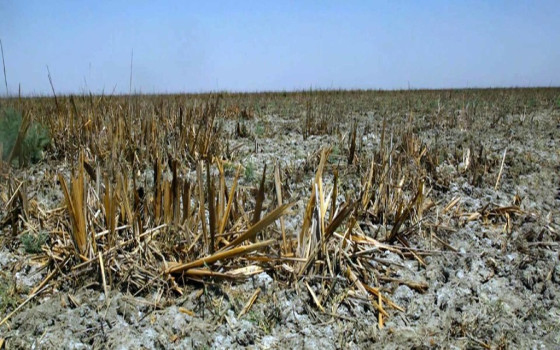
Climate Change: Half a Million Deaths Annually Linked to Heat, 124 Million People Face Food Insecurity Due to Drought... Governments Spend $956 Billion on Net Fossil Fuel Subsidies

- Europe and Arabs
- Wednesday , 29 October 2025 9:30 AM GMT
New York: Europe and the Arab World
The continued and excessive reliance on fossil fuels and the failure to adapt to a warming world are causing devastating damage to human health, according to a new global report released Wednesday that stressed the need to recognize protecting people's health as the most powerful driver of climate action. The report, published by the Lancet Countdown on Health and Climate Change in collaboration with the World Health Organization (WHO), concluded that 12 of the 20 key indicators for tracking health threats have reached record levels, demonstrating that climate inaction is costing lives, straining health systems, and undermining economies.
"The climate crisis is a health crisis. Every fraction of a degree Celsius of warming costs lives and livelihoods," said Dr. Jeremy Farrar, WHO Assistant Director-General for Health Promotion, Disease Prevention and Care.
He added that the report makes it clear that climate inaction is now killing people in every country. "However, climate action is also the greatest health opportunity of our time. Clean air, healthier diets, and resilient health systems can save millions of lives now and protect current and future generations."
Key findings of the report:
☐ Heat-related deaths have increased by 23% since the 1990s, bringing the total number of heat-related deaths to an average of 546,000 per year.
☐ Droughts and heat waves have been linked to an additional 124 million people facing moderate or severe food insecurity in 2023.
☐ Heat exposure will result in a loss of 640 billion potential working hours in 2024, with productivity losses equivalent to $1.09 trillion. The costs of heat-related deaths among older adults will reach $261 billion. Governments spent $956 billion on net fossil fuel subsidies in 2023—more than three times the annual amount pledged to support countries vulnerable to climate change. Fifteen countries spent more on fossil fuel subsidies than their entire national health budgets.
It is estimated that around 160,000 premature deaths per year between 2010 and 2022 could have been averted from reduced outdoor air pollution caused by coal alone. Renewable energy generation reached a record 12% of global electricity, creating 16 million jobs worldwide. Two-thirds of medical students will receive education in climate and health in 2024.
Promoting Health Through Climate Action
Dr. Marina Romaniello, Executive Director of The Lancet Countdown at University College London, said: “We already have the solutions to avert a climate catastrophe – and communities and local governments around the world are proving that progress is possible. From clean energy growth to adapting cities, work is underway and delivering real health benefits – but we must maintain the momentum. A rapid phase-out of fossil fuels in favor of clean renewables and energy efficiency remains the most powerful driver for slowing climate change and protecting lives.”
Meanwhile, Dr. Marina said that the shift to healthier, climate-friendly diets and more sustainable farming systems will dramatically reduce pollution, greenhouse gases, and deforestation, and could potentially save more than 10 million lives annually.
Climate Conference in Brazil
As the world prepares for the 30th Conference of the Parties (COP30) on climate change in Belém, Brazil, the findings of the Lancet Countdown Global Report 2025 provide a key evidence base for accelerating health-focused climate action.
The World Health Organization (WHO) stated that it will build on this momentum with its forthcoming COP30 Special Report on Climate Change and Health, a collaborative effort highlighting the policies and investments needed to protect health and equity and delivering the “Belém Plan of Action,” expected to be the landmark outcome of COP30.












No Comments Found